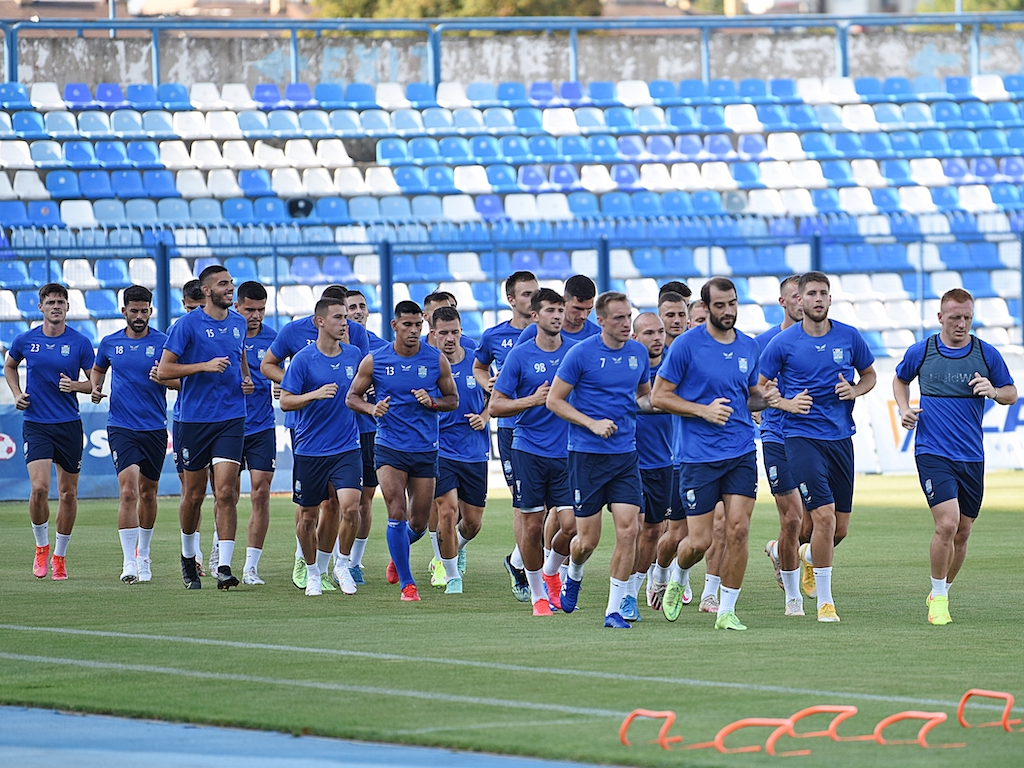Croatian Language Scholarship: Ten Things You Need to Know Before Arriving
September 6, 2021 - With the final list of the Croatian language scholarship recipients already published, many are packing their bags and others are already exploring Croatia before starting their classes. However, some still wonder about many things related to the course. What should they know before arriving?
On May 14th of this year, the Central State Office for Croats outside the Republic of Croatia announced the call to apply for the scholarship to study the Croatian language in four cities: Zagreb, Split, Rijeka, and Osijek. Applications were closed on June 14th, and the first list of scholarship recipients was published at the end of July. Later, after seven days of appeals by those who did not appear on the first list and others who desisted, a second and final list was published on August 17th.
Although the exact dates for the start of classes are not yet confirmed, it is expected to take place in the first week of October. We wish it were as simple as going from the airport to your desk and starting your Croatian language classes, but there are many things you should take into account before and when you arrive in Croatia (if you are traveling for the first time). Before we begin with the list, it is important to add at this point that there are three contacts with whom you will communicate before, during, and even after your participation in the course, and all three are in charge of different aspects of the scholarship. One is the Central State Office for Croats outside the Republic of Croatia, which is a government body that finances and organizes scholarships to study the Croatian language in the Republic of Croatia. The second is the Croatian language studies department at the Faculty of Philosophy of the city to which you have applied. Finally, you will also communicate with the accommodation in which you will stay during your studies.
Without further a due, here are ten things to keep in mind:
1. Confirm your participation in the course
After seeing your name once the first list was published in July, you probably took your participation in the course for granted. Although it is true that being on the list means having obtained a place to study the Croatian language in Croatia and access certain benefits, it is necessary to confirm your participation, as sometimes it happens that some do not show up or withdraw from their participation. So that the Office in charge can properly prepare the logistics behind the course, make sure to check your mail (both in your inbox and in the spam box). You will find an email asking you to confirm your participation in the course, as well as other instructions.
Weeks prior to your arrival you will receive emails with information about your classes, such as your schedule or classroom. In some cases, you will be asked to take a pre-test online to determine your current level of Croatian. Don't worry, it's just to get an idea.
Note: if you have not received a confirmation email, be sure to write to This email address is being protected from spambots. You need JavaScript enabled to view it. and confirm your participation, as well as ask for additional information about the scholarship.
2. Confirm your accommodation
As well as confirming your participation in the Croatian language course scholarship, you will also need to confirm your accommodation, if you qualify for it. The Croatian language scholarship includes a stay in student accommodation in your city, but places are limited. A number of accommodation places have been assigned by each city. For example, 50 places were assigned for accommodation in Zagreb, and to find out if one corresponds to you, you must check your order in the final list of the Croatian language scholarship recipients. If you are in the top 50 on the list for Zagreb, you will most likely have an accommodation quota. Why do I say "most likely"? Because it must be taken into account that:
a) The accommodation right is only given to those younger than 36.
b) Not everyone asked for accommodation on their applications.
That is why we recommend you check your email for any communication from the student accommodation office of your city, in which they will inform you that you are part of the list of those to stay in student accommodation. If not, write an email to the Central Office as in the previous point, since they are the ones who determine the list of students to stay in the student accommodation.
Note: if you have received an email from the student accommodation office, in addition to requesting a confirmation, they will also ask you in advance to indicate the date you plan to check in. Likewise, some student accommodation may request a medical certificate, the format of which will be attached in the mail, and which must be filled out by your doctor or pediatrician. Do not forget to fill it out and bring it printed to do your check-in.
3. Bring all your documentation
During the months prior to the start of the Croatian language course, you have surely gathered a large number of documents and papers that served you for your application. Well, although it is very likely that you will not need them again, we do strongly recommend that you organize a folder in which you archive all the documents related to Croatia. Not only can an unexpected or unforeseen situation arise, but you will also need them if you decide to apply for one more semester of the Croatian language course while in Croatia if you previously only applied to one.
We recommend you have a digital folder, and another with all your printed documents. Some of the things you can bring are:
- Original and copy of your passport (of your country of birth and Croatian, in case you have the latter).
- Original and copy of your ID (from your country of birth and Croatian, in case you have the latter).
- Driver's license (you can use the one from your country for a year, then you will have to change for a Croatian one at the Police Station).
- Criminal records (apostilled).
- Medical history (translated, preferably).
- Information and details of your international health or travel insurance.
- ID size photos (useful to get your public transport card and other procedures).
Any other documents that you consider convenient to bring, especially those that must be apostilled, we recommend that you include them since it will be difficult to get them later once you are in Croatia.
Every year, many students take advantage of their stay in Croatia to obtain their nationality and/or citizenship (passport). If this is your case, take into account the necessary documents to apply to each one, and be sure to include them in your folder. We recommend you bring:
- Croatian nationality papers (yours, if you have them).
- Croatian nationality papers from your closest Croatian relative (father, grandfather, great-grandfather, great-great-grandfather, etc).
- Your original birth certificate (apostilled, translated, current and notarized if he is a foreigner).
- The original birth certificate of your closest Croatian relative (father, grandfather, great-grandfather, great-grandfather, etc).
- Your passport (original and copy).
- Your ID (original and copy).
- A valid identity document with a visible photo (and an apostilled, translated, and notarized copy).
- Criminal record certificate (no more than 6 months old, apostilled, translated, and notarized).
- Your biography (translated into Croatian and including the reasons for your application).
Note: depending on your case, they may request all these documents, only some or other additional ones. For more information on applying for Croatian nationality and citizenship, check out this guide made by Sara Dyson, from Expat in Croatia, approved by an immigration lawyer and the ministry that approves nationality and citizenship. You can also check the information given by the Ministry of Interior (MUP) in Croatia HERE.
4. Check-in at your accommodation
The first thing you will want to do when you arrive in Croatia if you have confirmed your stay in the student accommodation is to check in and settle in. After the whole trip, and with so many suitcases on top, it is best to rest and organize yourself before moving on to the next thing. For this, it is necessary to have agreed to your arrival date by email with the office of your student accommodation. It may be that in some cases they tell you that it can be done only with some anticipation, both in days and in hours. For example, if your plane arrives on a Sunday afternoon, you may need to spend the night elsewhere and check in first thing in the morning on Monday. In case you haven't booked your flight yet, the wisest thing would be to fly a few days earlier.
Next, we indicate the address and location of the student accommodation in each city. If you have everything agreed with the office, go to the reception of your accommodation to present your documentation, for checking in, and receiving your room key and accommodation contract.
Zagreb
- Studentski Dom Ante Starčević
Zagrebačka avenija 2, 10000 Zagreb
email: This email address is being protected from spambots. You need JavaScript enabled to view it.
Box office: 01 4590 841, Management: 01 4590 843
Manager: Damir Mikulić, tel. 01 4590 842
Reception / port of the student settlement: 01 4590 840; 091 4593 539
(working hours: 0 - 24h)
Student Accommodation Ante Starčević (Photo: Pavle Miljovski)
- Studentski Dom Stjepan Radić
Jarunska 2, 10000 Zagreb
e-mail: This email address is being protected from spambots. You need JavaScript enabled to view it.
Tel. administration: 01 45 90 801, cashier: 01 45 90 811, fax: 01 30 15 946
Manager: Boženko Ćosić, tel. 01 45 90 802
Reception / port of the student settlement: 01 4590 800; 091 4593 536
(working hours: 0 - 24h)
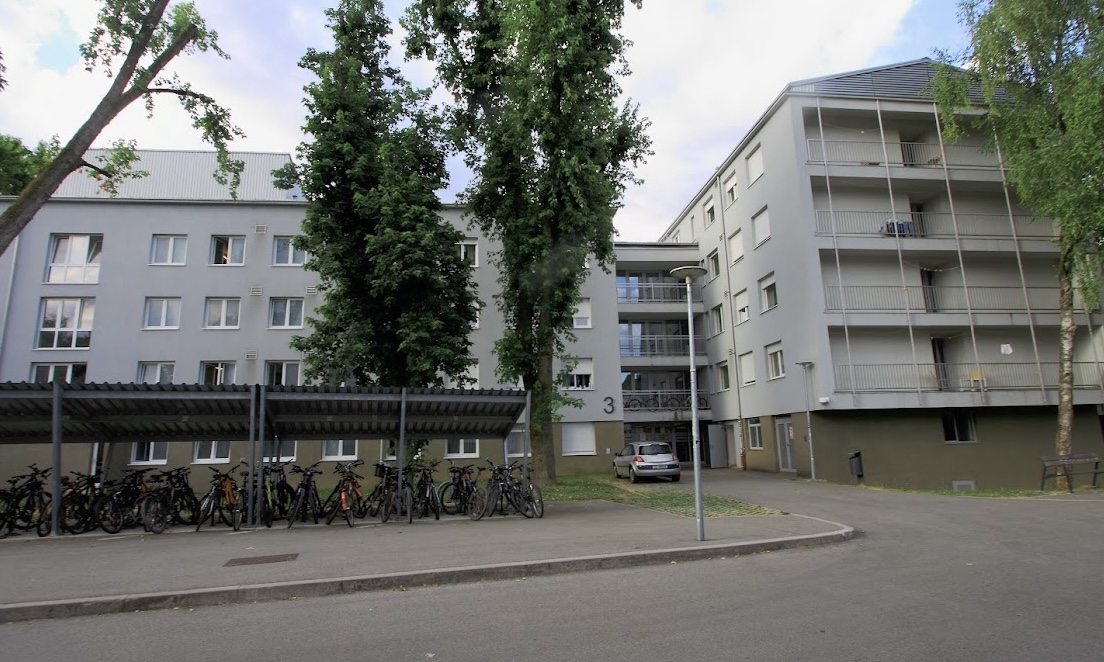
Student Accommodation Stjepan Radić (Photo: Pavle Miljovski)
Split
- Dom Kampus Dr. Franjo Tuđman
Cvite Fiskovica 3, 21000 Split
Tel: 021 / 440 - 999, fax: 021/440-958
e-mail: This email address is being protected from spambots. You need JavaScript enabled to view it. (accommodation hostess)
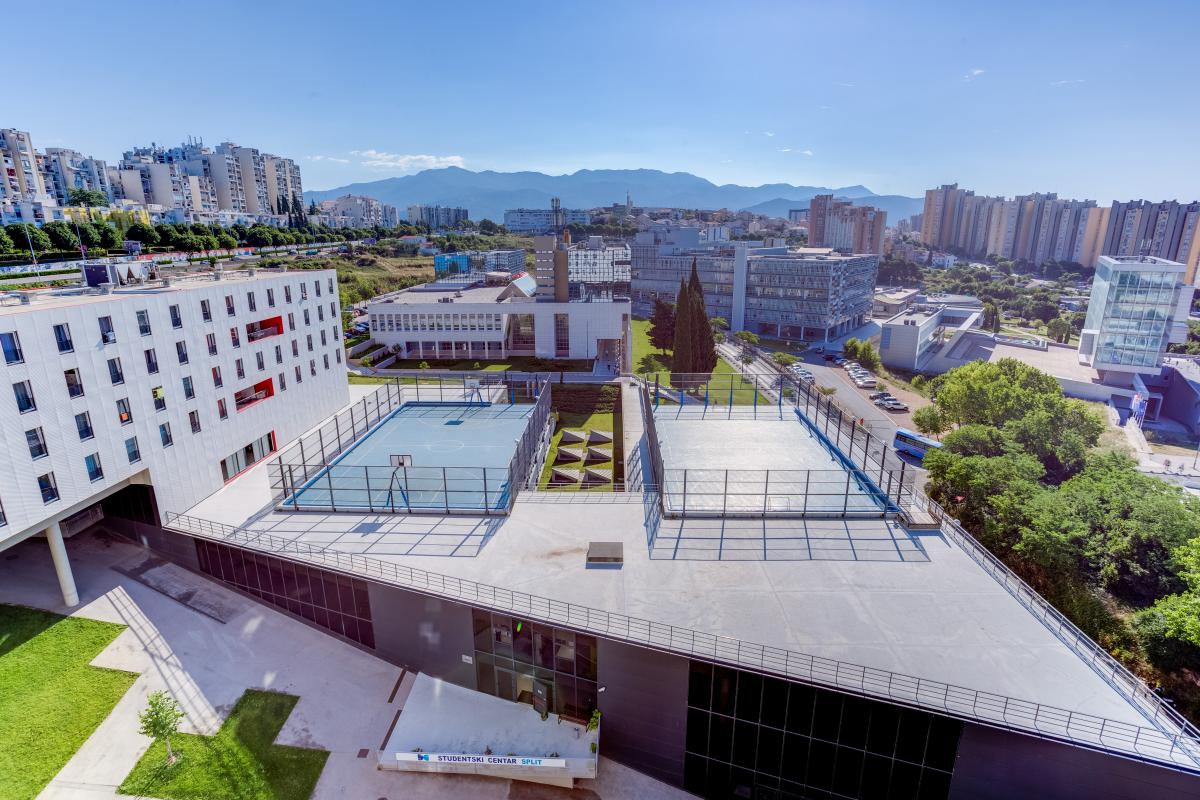
Student Accommodation Franjo Tuđman (Photo: Split Student Center)
- Studentski dom "Bruno Bušić"
Spinutska 37, 21000 Split
Tel. 021 / 510 - 850
e-mail: This email address is being protected from spambots. You need JavaScript enabled to view it.
e-mail: This email address is being protected from spambots. You need JavaScript enabled to view it.
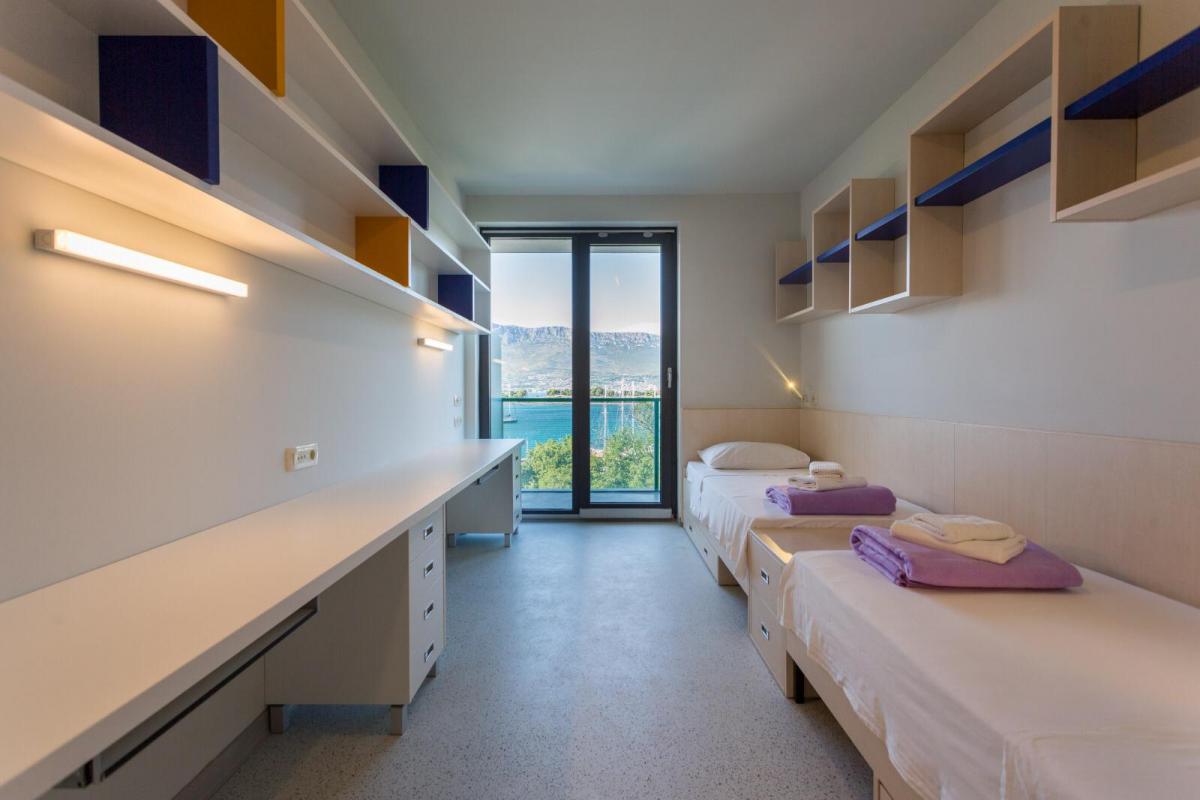
Student Accommodation Bruno Bušić (Photo: Split Student Center)
- Studenski dom Hostel Spinut
Spinutska 39, 21000 Split
Tel: 021/386-711, 021/386-733, fax: 021/386-774
e-mail: This email address is being protected from spambots. You need JavaScript enabled to view it. (receptionist)
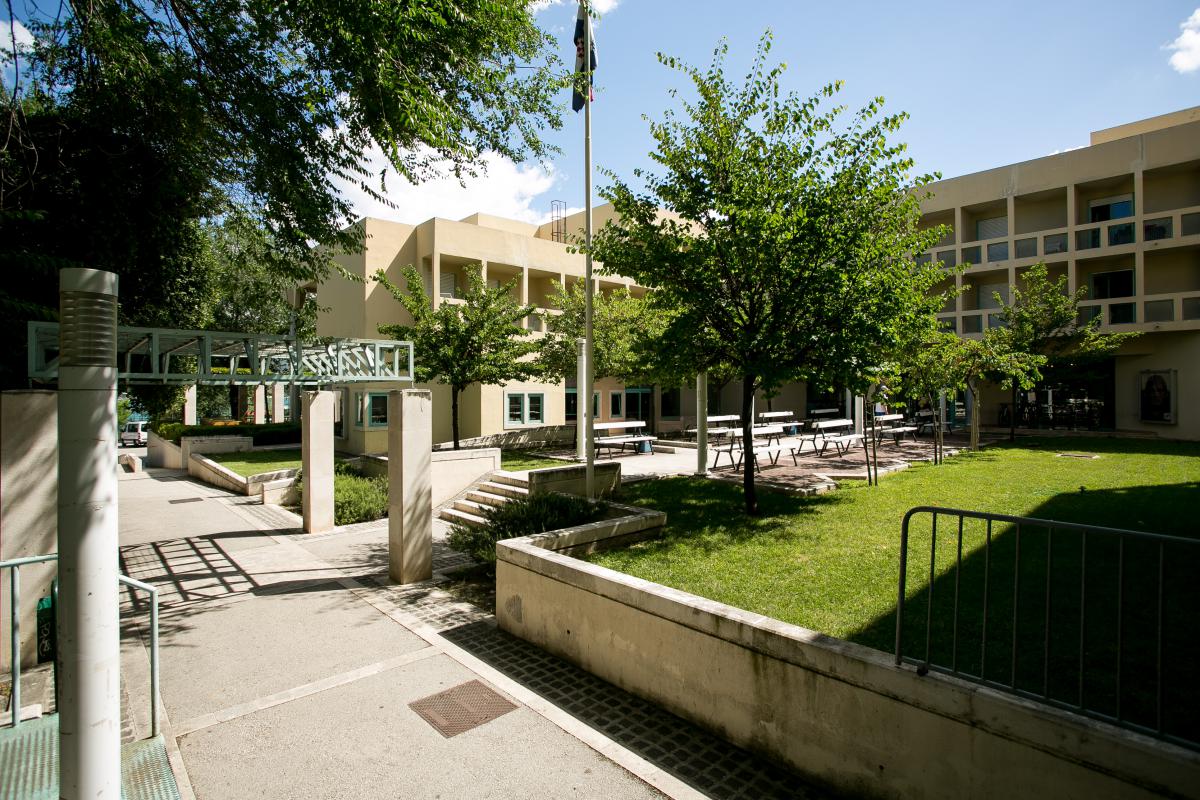
Student Accommodation Hostel Spinut (Photo: Split Student Center)
Rijeka
- Studensko Naselje ''Trsat''
Ul. Radmile Matejčić 5, 51000, Rijeka
e-mail: This email address is being protected from spambots. You need JavaScript enabled to view it. / Student Center: This email address is being protected from spambots. You need JavaScript enabled to view it.
Tel. +385 51 584 530
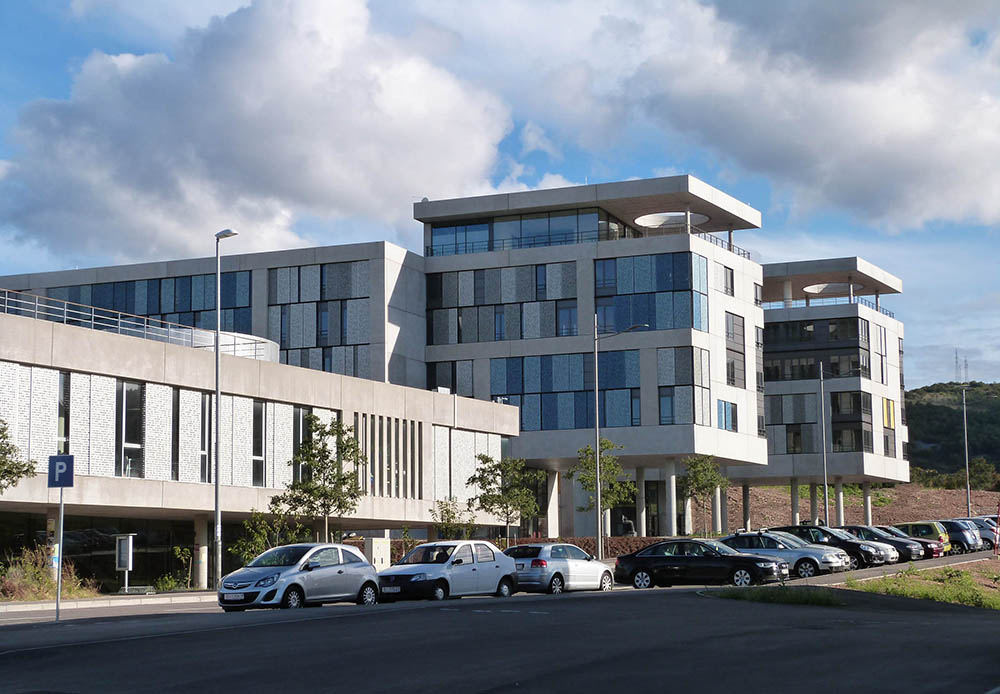
Student Accommodation Trsat (Photo: Rijeka Student Center)
Osijek
- Studentski Dom IGK
Ivana Gorana Kovačića 4, Osijek 31000
Phone: Management - (031) 574 002
Reception - (031) 574 269
Working hours of the administration: from 7-15 hours
work with clients 08-14 hours
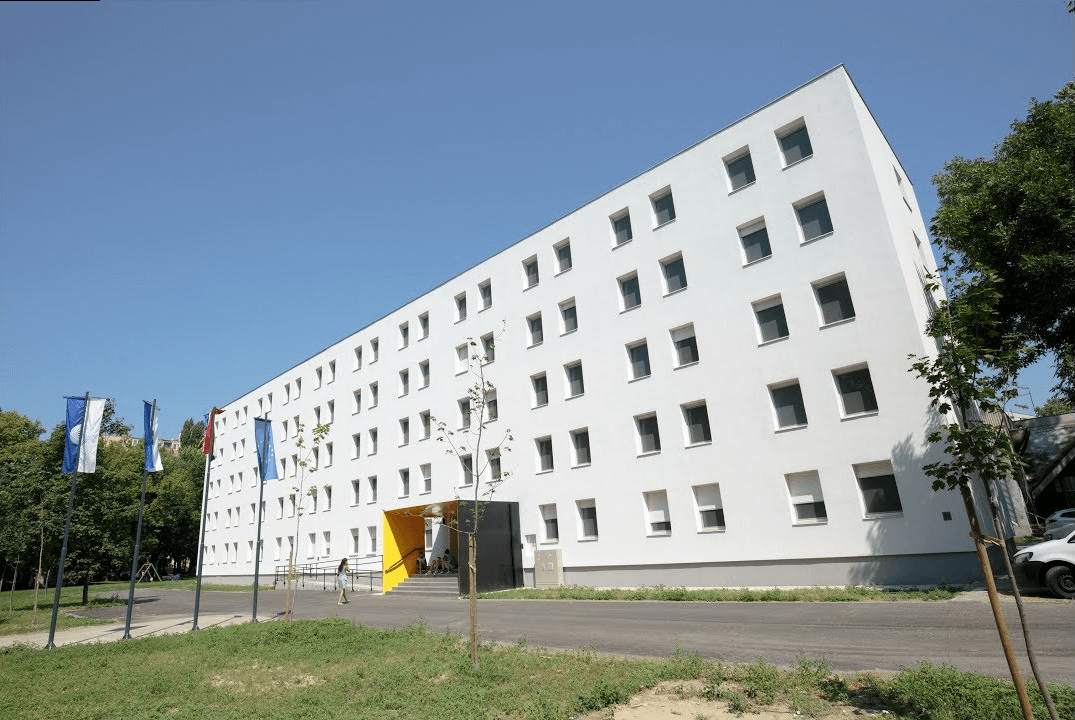
Student Accommodation IGK (Photo: Osijek Student Center)
- Studentski Dom K.P. Svačića
Kralja Petra Svačića 1C, Osijek 31000
Phone: Management - (031) 251 121
Reception - (031) 251 120
Working hours of the administration: from 7-15 hours
work with clients 08-14 hours
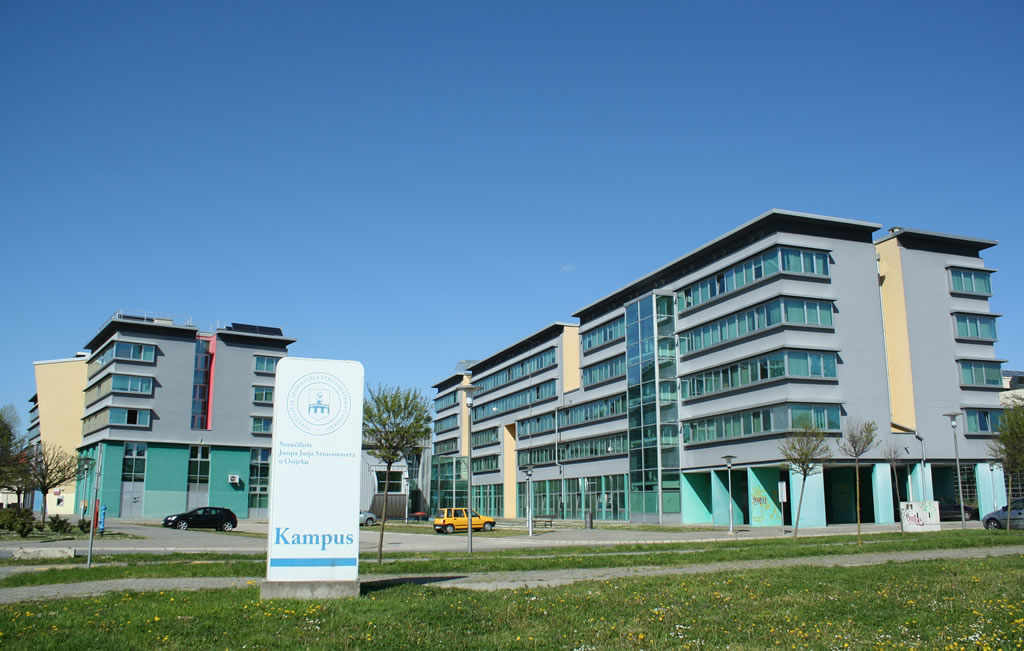
Student Accommodation K. P. Svačića (Photo: Osijek Student Center)
Do not forget to bring your medical certificate in case they have previously requested it by mail. You must also present your passport to be identified. You will be asked to fill out a form related to COVID-19 and sign a contract. Once registered, they will give you your keys and indicate your pavilion and bedroom. In some accommodations, such as in Rijeka, they will give you directions for the use of other facilities such as the laundry, gym, and library.
Note: Remember that student accommodation in Croatia CANNOT be used for self-isolation. It is also prohibited to consume alcohol or drugs inside the accommodation. Doing so may mean your expulsion from the scholarship and not being able to apply again in the future. Remember, when you come to Croatia you are a representative of your country.
5. Formally enroll in the course at the Faculty of Philosophy
Once you have checked into your accommodation and taken a good rest, go to the Faculty of Philosophy in your city, to officially enroll in the Croatian language course. In each Faculty, there is the department in charge of organizing the Croatian language course in that city, and they will provide you with the necessary information about the course, as well as some documents that will be useful to you. We recommend that you attend the Faculty early to enroll since in many cases they only work until 1:00 p.m. or 2:00 p.m.
You will have to ask them about the public transport card, and they will give you a student document and instructions to acquiring it at the public transport office in your city. Also, ask them about the WiFi, and they will give you your username and password that can be used both in the building of your Faculty, as well as in your accommodation and in various parts of the city.
Remember when I mentioned above that you organize all your documents in one folder? It would be a good idea for you to take it to the Faculty at the time of enrollment, they will surely ask for an ID and probably passport-size photos.
The Croatian language course is organized at the Faculty of Philosophy in Zagreb, Split, Rijeka and Osijek, and is conducted by the Center for Croatian as a Second and Foreign Language "Croaticum" (Zagreb), the Center for Croatian Studies in the World (Split), Rijeka Croatian School (Rijeka) and the Department of Croatian Language and Literature (Osijek).
Depending on your city, this is where you should head to:
- Zagreb: Ul. Ivana Lučića 3, 10000, Zagreb / http://www.ffzg.unizg.hr/centar / +38514092111 (On Google Maps)
- Split: Poljička cesta 35, 21000, Split / http://www.ffst.unist.hr/ / +38521386122 (On Google Maps)
- Rijeka: Sveučilišna Av 4, 51000, Rijeka / http://www.ffri.uniri.hr/ / +38551265600 (On Google Maps)
- Osijek: Ul. Lorenza Jagera 9, 31000, Osijek / https://www.ffos.unios.hr/ / +38531211400 (On Google Maps)
Note: the Croatian language scholarship includes the two subsidized meals, and for this, you will need a card that will be provided by the Central Office of the State for Croats outside the Republic of Croatia, through the Croatian language department in your Faculty. Unfortunately, it is unlikely that you will receive it on the first day or even in the first few weeks, so you will need to be patient. Eventually, it will be your teacher who will give you your card.
6. Register your address at the police station
Something essential and that depends largely on you, is to register your residence in Croatia. Although there are students with a Croatian passport, this is not an exception to do so, because in Croatia it is mandatory to have a registered residence and address, and this information does not appear in the passport. Likewise, those who do not have a passport should even more so register their residence since the duration of the course exceeds 90 days of free transit through the country as a non-EU citizen.
The Central State Office for Croats outside the Republic of Croatia, through your Croatian language department in your Faculty, will provide you with a study contract for the scholarship that you will need to bring to the police station in your city. In addition, you must bring your original passport and the accommodation contract that you were given when you check-in at your student accommodation (or in case you have stated elsewhere, a valid accommodation document or contract).
Like the meal card, the study contract can take a few weeks to be delivered, so you must be patient and, as soon as you receive it, go to the police station.
The police stations in each city are as follows:
- Zagreb: Ul. grada Vukovara 33, 10000, Zagreb (On Google Maps)
- Split: Trg Hrvatske bratske zajednice 8, 21000, Split (On Google Maps)
- Rijeka: Ul. Žrtava fašizma 3, 51000, Rijeka (On Google Maps)
- Osijek: Trg Lavoslava Ružičke 1, 31000, Osijek (On Google Maps)
For those interested in applying for their citizenship or passport, this is a vital step to achieve it, since these procedures (especially that of citizenship) can take several months, even longer than a semester of studies lasts. In addition, if you do not have a permanent or temporary residence in Croatia, the Ministry will simply reject your application. Therefore, those without a Croatian passport will have to apply for a one-year temporary residence in Croatia and to achieve this you will need to present the aforementioned documents at the police station, including the study and accommodation contract. Remember then that before applying for citizenship, you must first apply for temporary residence. Unfortunately, both cannot occur in parallel, and you must first receive the resolution of your approved temporary residence before applying for citizenship.
Note: it is highly recommended to organize yourself and be clear about where you will spend the year in which you process your citizenship. For example, if you really believe that you will spend a year in Zagreb studying the Croatian language, apply for temporary residence and your citizenship in that city. Another example is of someone who applies for a first semester to Split, and at that time they apply for temporary residence. Then, they decide to apply for a second semester in Osijek, while they wait for the resolution of their temporary residence. This is not recommended as the police consider your address to be in Split, not Osijek. This could affect obtaining your temporary residence or your citizenship.
7. Open a bank account
While opening a bank account is important in any circumstance, as a scholarship student you have an additional reason to consider it. If you stay in student accommodation, you will have to pay the cost of accommodation on a monthly basis (the amount depends on the accommodation). You should go to your accommodation office at the beginning of the month and make the payment.
"But didn't the Croatian language scholarship include free accommodation?" Yes! Compensation for accommodation will be paid to you after you submit the following documents:
- certificate from the Faculty of Philosophy on successfully completed course,
- a Žiro account agreement (not a current account), in your name, concluded with any commercial bank in the Republic of Croatia, with the indicated giro account number (IBAN),
- certificate (certificate) of the Ministry of the Interior of the Republic of Croatia (MUP) on your residence/stay in the Republic of Croatia, with the stated address of the student settlement.
- One of the attached documents should also show your personal identification number (OIB).
Once you obtain your accommodation contract, which will be given to you the day you check in at your student accommodation, take that contract along with your passport to the bank of your choice, and in addition to a current debit account, you must also request a Žiro account (pronounced: SHI-ro). At the end of the course, you must send the IBAN (account number) of your Žiro account to the Central State Office, to receive compensation for your accommodation.
Note: to open an account in a Croatian bank it is not necessary to have permanent residence in the country or Croatian citizenship. All you need is an OIB (Osobna Iskaznica Broj) identification number. If you have a Croatian passport or ID, you will find this number in either of the two. If you don't have an OIB number, you will need to get one. To find out how to obtain an OIB number, check out this Expat in Croatia guide, which includes the form to fill out and all the necessary steps. Remember that you will also need your OIB to request accommodation compensation at the end of the course.
8. Buy your study materials
To study the Croatian language you will need a learning book and an exercise book. Don't worry if you still don't have your books to study the Croatian language as soon as you arrive. Usually, your teacher will provide you with copies in the first few days, and it is he or she who you can ask where to get them. Remember that you will not be given copies for the entire semester! Most likely, your faculty has its own bookstore, where you can buy your books to study Croatian.
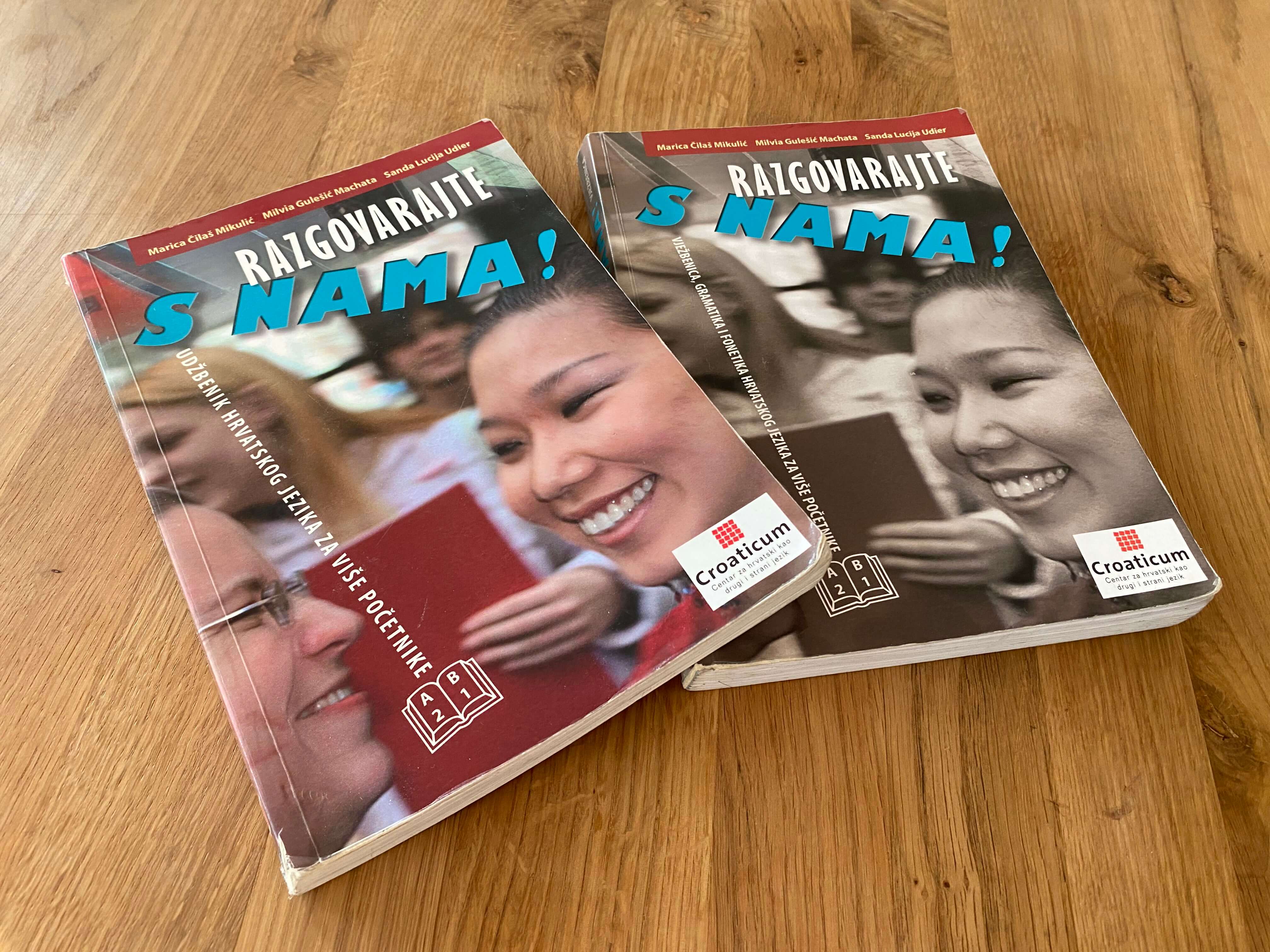
The learning book on the left, and the exercise book on the right. These books are for the A2/B1 level. (Photo: Jose Alfonso Cussianovich)
Take good care of your books, as they can be useful even after studying the course. The learning book includes a Croatian to English dictionary on the final pages, and the exercise book includes tables of contents at the end for easy review of rules for declensions, conjugations, and more.
Note: make sure that the books you buy correspond to your learning level. If this is your first time studying the Croatian language, you will most likely need to buy the A1 / A2 level books.
9. Respects health measures against COVID-19 in your accommodation and faculty
Despite the difficulties and obstacles due to the COVID-19 pandemic, the Central State Office for Croats outside the Republic of Croatia managed to develop the scholarship for the Croatian language course in the March-June 2020 semester, the semester from October 2020 to January 2021, and the semester from March-June 2021.
The only possible way to develop the Croatian course was through online learning, thus respecting the measures and restrictions imposed by the Croatian government. As the epidemiological situation began to improve over time, some faculties such as Zagreb and Split returned to face-to-face classes for the March-June semester of 2021. It should be noted that in order to develop face-to-face classes normally, the use of masks, as well as the reduction of the number of students per class, and distribution of seats in the classroom that respects social distancing.
It is expected that this year all the faculties will return to face-to-face teaching, but that means respecting, in the same way, the epidemiological measures to combat the pandemic. Masks are mandatory. Through the call made by the Central State Office in May, a special call was made to the selected students to reconsider the possibility of traveling to Croatia and that, as an alternative, they could still take the language course online from their countries.
During the study time of the course, it is recommended to avoid attending classes in case you feel fever, malaise, or cold. Notify your teacher and classmates by mail if you suspect you may have COVID-19. Take a PCR test to rule out that you have COVID-19. If it is negative, communicate with your teacher and classmates so that they are calm. If it is positive, contact the health center and your accommodation, and follow their instructions to be transferred to other facilities where you can perform isolation during your recovery. Remember, student housing cannot be used, under any circumstances, as a place for self-isolation.
In case you feel ill or feel obliged to miss class, let your teacher know in advance and you will see that it is possible to attend class online from your room.
IMPORTANT: If you have already been vaccinated, it is important that you provide this information to your accommodation when registering upon arrival. We also recommend you go to the HZZO (Croatian Health Institute) and ask for the COVID Passport, which is a QR code that will begin to be requested on a mandatory basis throughout the country to attend different events or places.
Note: If you have not yet been vaccinated and want to do so, contact the Central Office of the State, and it is very likely that they will help you get a vaccination appointment in your city.
Note: Do not forget to wear a mask in the corridors of your accommodation and faculty.
For all you need to know about coronavirus specific to Croatia, including travel, border, and quarantine rules, as well as the locations of vaccination points and testing centers across the country, make sure to bookmark our dedicated COVID-19 section and select your preferred language.
10. Get everything ready for your trip to Croatia!
Weather in Croatia
Now that you know everything you need to know before traveling to Croatia and attending your Croatian language classes, get ready for the months to come! You will surely attend the semester from October 2021 to January 2022, for which I will tell you what is the climate that awaits you in the Croatian autumn and winter.
If you attend classes in Split or Rijeka, you will find yourself in the second and third largest cities, respectively, in Croatia, and both are located on the Adriatic. In October you will find warm and sunny days where the temperature can reach up to 20 degrees, as well as cold but not icy nights, with temperatures that drop to 14 degrees. It is possible to take a dip in the sea during this month! However, it is likely that at this time of year (especially in these two cities) you will find rains, winds, and storms that begin to appear more frequently. In Zagreb, located in central Croatia, and Osijek to the east, the weather may be similar, but surely less sunny.
Starting in November you will notice that the temperatures will begin to decrease progressively (17 degrees max, 10 degrees min), and the sunny days will become less frequent. You will get used to the strong winds and rain. Already in December and January, you will start to wrap yourself more warmly against the cold temperatures both during the day and at night (5 degrees max, and temperatures can drop to -5 or -7 degrees. If you are in Zagreb or Osijek, prepare for the snow!
Therefore, we consider it essential that you bring:
A jacket to keep you warm in very low temperatures
Cotton or wool sweaters
A windbreaker that can also keep you warm
A waterproof jacket for the rain
Leg warmers
Warm socks
Winter pajamas
Waterproof boots (you can ruin your white sneakers in puddles caused by rain)
Winter gloves
Hats for the cold
Umbrella (very important!)
Sunglasses (despite the low temperatures, there can still be very sunny days and the sunlight bouncing off the marbles of Diocletian's Palace in Split could leave you blind!)
In the winter months, the student accommodation turns on the heat in the student rooms. We recommend that you check this at the offices of your accommodation since in some cases it is necessary to confirm that you expressly wish to do so.
If you applied for two semesters or plan to apply for a second one while attending the first one, then you'll expect hotter months from May to June. But don't worry, you'll have enough time to buy some shorts, swim trunks, or sandals. My suggestion? Travel light! Clothes prices in Croatia are great, so you can travel with what you really need and search for whatever you might need later here.
To learn more about the weather in Croatia, visit the complete Total Croatia guide.
In case you find yourself caught in a rain or storm in Croatia, read this interesting page from Total Croatia on what to do while it rains in Croatia.
Currency in Croatia
Regarding the currency, remember that in Croatia the Euro is not used, but rather the Kuna. In addition, it is very likely that in several places they will ask you to use cash and not a card. If you arrive at the airport, we recommend that you change only a little of your money there to move to the city. It is preferable that you exchange your euros or dollars at an exchange office in the city, where the prices are better.
To give you an idea, one euro is equivalent to 7 kunas. While a dollar is equivalent to 6 kunas.
The expenses during your stay may vary depending on the city, but with some approximate ones, you could calculate what you will need monthly:
- 100 kunas per month to cover public transport
- 105 kuna per month to cover your meal (using the card for the two subsidized meals)
- 120 kuna per month for laundry (once a week, 30 kuna)
- 540 kunas per month to pay for accommodation (in Zagreb the amount is 300 kuna, but we have put the most expensive in Rijeka as a reference)
- 150 kuna per month to pay for an unlimited data plan on your phone with Telemach
- 2000 kuna for extra expenses (food, clothing, movie tickets, taxis, travel, etc)
In total, you may need approximately 3815 kuna or 450 euros to cover some monthly expenses.
For more information about currency in Croatia, visit Total Croatia 's complete guide.
Transport in Croatia
Depending on your city, you will notice that public transport is different. If you are lucky, it is likely that you will quickly become familiar with the routes and bus stops in your city, but most likely at first you will miss a stop or get lost. Don't worry, the four cities have very well organized transport systems and, if you make a mistake, you will see that you will be able to orient yourself again.
In Zagreb, the city has a transportation system that includes tram and bus routes. You can get to any part of the Croatian capital in both. You should make sure you have a balance on your public transport card, and remember that at the beginning of the month you will have to recharge it at a Tisak or at the Zagreb Public Transport (ZET) office, as it cannot be accumulated between different months. Another alternative is to buy 4 kuna tickets in a Tisak, which you can use to make two trips within 30 minutes on both the tram and the bus. You can also buy the ticket from the driver, but this will cost you 6 kuna.
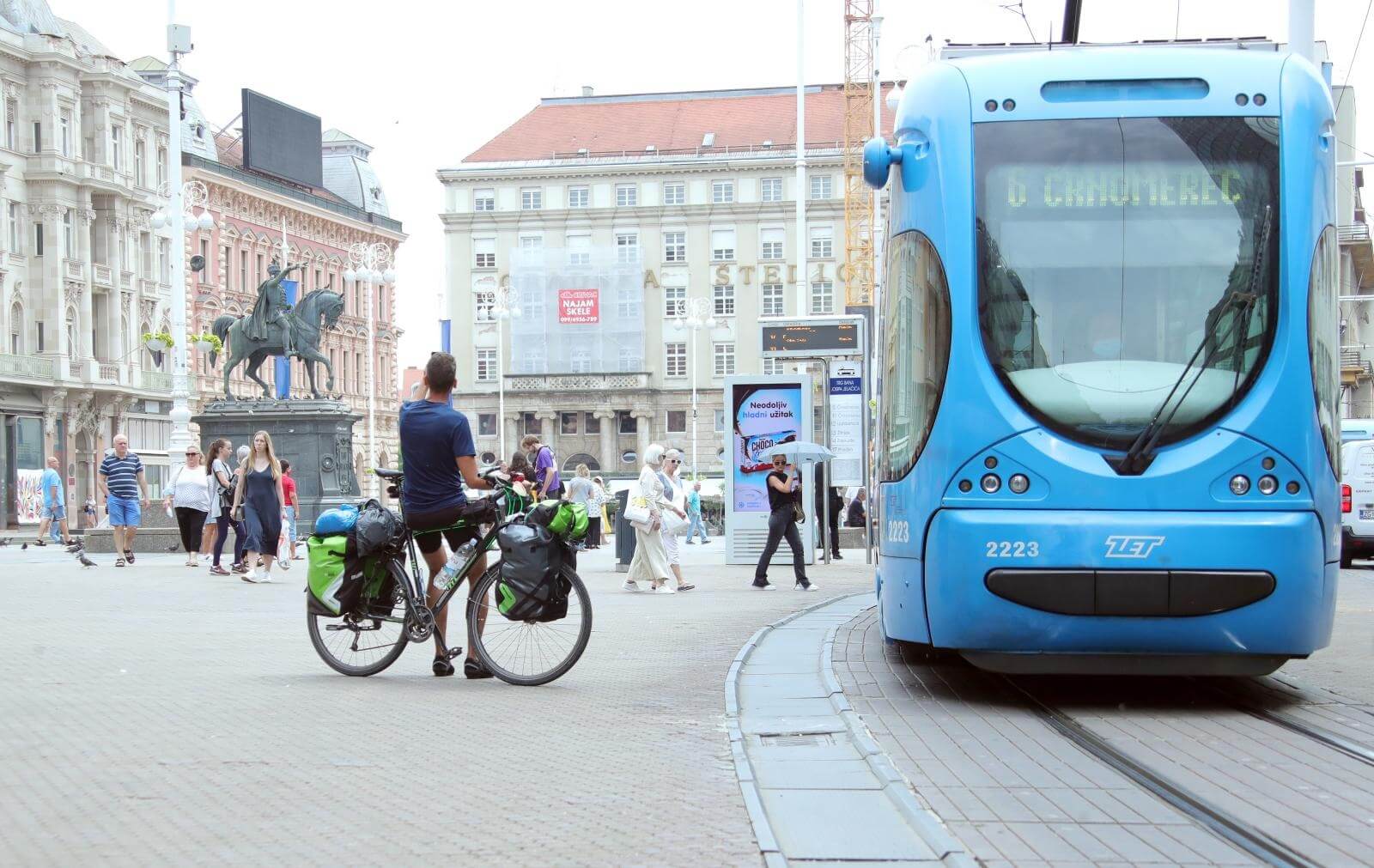
The Zagreb trams at the Ban Josip Jelačić square (Photo: Sanjin Strukic/PIXSELL)
In Rijeka, the city has a bus system called Autotrolej that connects the city. As in Zagreb, you will need to get your public transport card to move from Trsat (where your accommodation and classes are) to the center and vice versa. In this city, it is highly recommended to have the card, since the largest number of shops and restaurants are in the center, and to return to Trsat you have to walk a lot and through steep streets, which in these times can become streams of water with storms and rains. The buses that take you to and from Trsat are lines 2, 7a, and 8. If you want to buy the ticket from a Tisak or from the driver, it will cost you 10 kuna if you travel from Trsat to the center of Rijeka and vice versa.
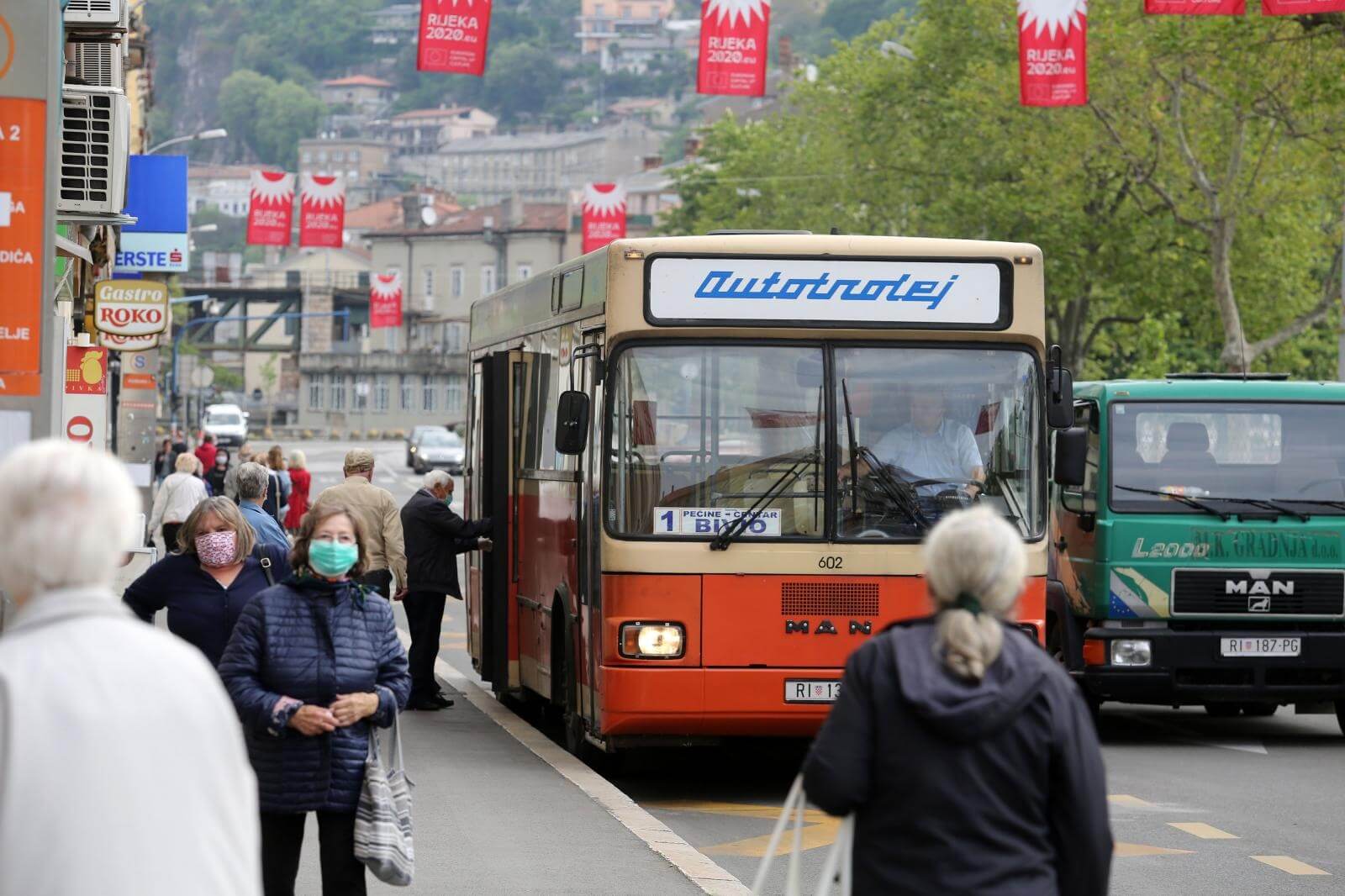
The buses in Rijeka (Photo: Goran Kovacic/PIXSELL)
In Split, as in Rijeka, you will find a network of buses that runs through the different areas of the center and the outskirts. Split public transportation company is called Promet Split. For detailed maps of their city and suburban lines, as well as ticket prices, check out their official website. Most of the locations within Split fall into Zone 1 in the company’s price list. Zone 1 tickets for a single ride cost 9kn when bought on Tisak, 11kn when bought on the bus. The daily ticket is 30kn.
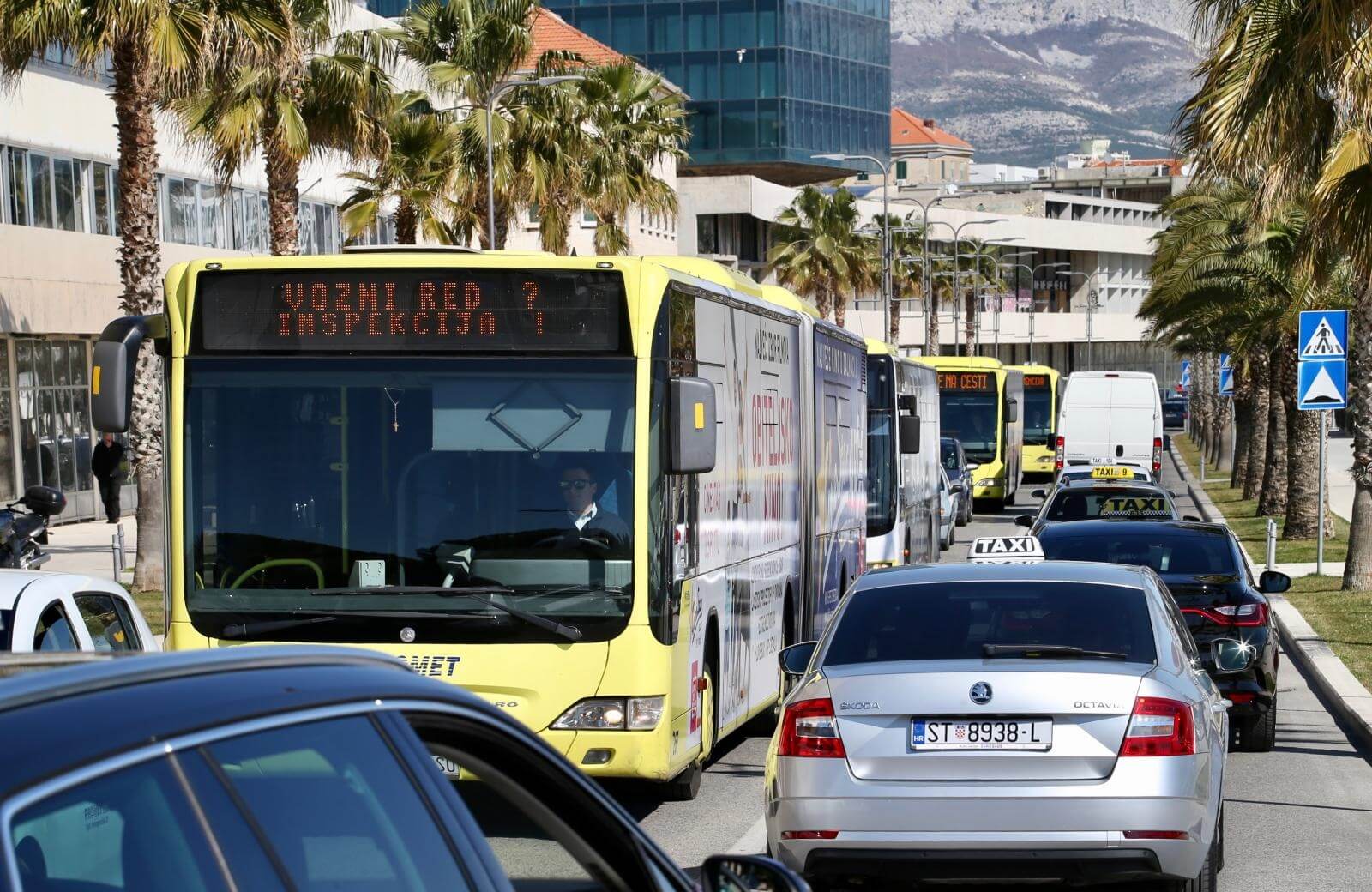
The buses in Split (Ivo Cagalj/PIXSELL)
Osijek was the first city in Croatia to have a tram system. In fact, trams still run through the city: it’s the only place in Croatia outside Zagreb that has trams. Osijek is a very pleasant city to walk around. Indeed, you can walk between all of the city’s key areas without barely leaving fantastic park ground. And we recommend you do just that. However, Osijek is also nicely covered by public transportation. In this case, that means cheap local buses and trams. Additionally, there are well-priced taxi services. It costs only around 20 kn to travel anywhere in the city (within 5 km).
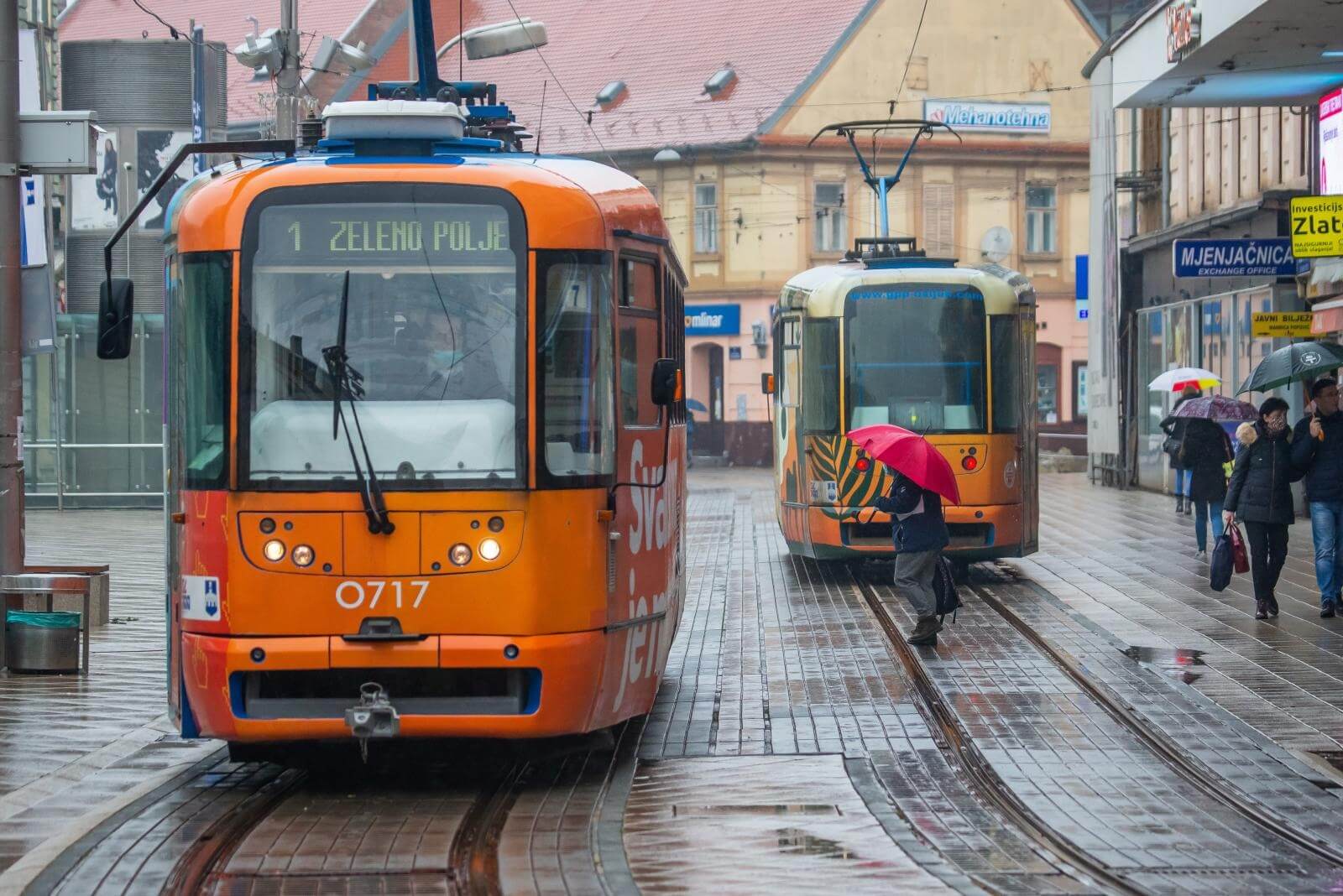
The trams in Osijek (Davor Javorovic/PIXSELL)
Not only will you find that it is easy to move from one place to another in the city, but that you will also be able to travel to all destinations in the country through buses and trains. If you're familiar with Uber, you'll be able to catch one anywhere in your city and even at late hours. Other options for Taxis are Cammeo and Bolt.
Health in Croatia
You will most likely arrive in Croatia with international health or travel insurance. Make sure you bring the necessary documentation related to that insurance. In case you need a consultation with a specialist or have to go to emergencies, contact your insurance before and after to cover the expenses. Medical receipts for those who are not enrolled with insurance can be ruthless. In addition, in pharmacies, it is essential to present a prescription to obtain your medications. A doctor assigned by your travel insurance can fill this prescription and mail it to you.
In case you are interested in public health insurance, especially if you wish to stay for a longer period of time even after the course ends, health insurance in Croatia is mandatory for all those who have temporary or permanent residence in the country, both ones with Croatian citizenship and foreigners. If you have an OIB, you can apply for Croatian health insurance. Check with the HZZO (Croatian Health Institute) offices if Croatian health insurance is right for you or if you are eligible. In the most likely case, you will have to pay the equivalent of the previous year to enroll, and you must not be affiliated with private or public insurance in your country of origin. Once enrolled, you will have to pay 500 kuna per month that will allow you to access prescribed medications, medical consultations, and cover expenses in the emergency room. Also, you will need to register with a GP.
To learn more about the healthcare system in Croatia, visit this guide from Total Croatia, where you will find information about specialists (some of them that speak in English), emergency numbers, hospitals, and insurance.
If you'd like to have emergency contact numbers handy, check out this Total Croatia page.
To learn more about Zagreb, such as places to see, things to do, museums, restaurants, bars, cafes, public transport, fun facts, events, and more, visit their Total Croatia page.
To learn more about Split, such as places to see, things to do, museums, restaurants, bars, cafes, public transport, ferry, fun facts, events, and more, visit their Total Croatia page.
To learn more about Rijeka, such as places to see, things to do, museums, restaurants, bars, cafes, public transport, ferry, fun facts, events, and more, visit their Total Croatia page.
To learn more about Osijek, such as places to see, things to do, museums, restaurants, bars, cafes, public transport, fun facts, events, and more, visit their Total Croatia page.
To find out more about what you need to know about Croatia, how to get around the country, destinations you can visit during your stay, and things you can do and see in these months, visit www.total-croatia.com, available in your language!
If you wish to learn more or have any questions about the Croatian language scholarship given by the Central State Office for Croats Outside the Republic of Croatia to study the Croatian Language in Croatia, send me an email to This email address is being protected from spambots. You need JavaScript enabled to view it.
HNL Round 7 Recap: Croatian Derby Weekend - Dinamo Tops Osijek, Rijeka Beats Hajduk
August 20, 2021 - The 7th round of the Croatian First League was held from August 27 to 29, 2021. This round featured Croatia's biggest derbies - Osijek v Dinamo, and Hajduk v Rijeka. Here's our HNL round 7 recap
Slaven Belupo v. Hr Dragovoljac (0:1)
Belupo and Dragovoljac opened the 7th round on Friday, August 27, 2021, in Koprivnica.
While the first half went without goals, Belupo's s Glavcic received his second yellow in the 76th minute and Mioc scored in the 86th minute for 0:1 and Dragovoljac's first win this season!
Belupo is currently in 9th place with 5 points, while Dragovoljac is in last with 3.
Lokomotiva v. Gorica (0:1)
Lokomotiva and Gorica met on Saturday, August 28, 2021, in Zagreb.
After another scoreless first half, Lovric scored 0:1 in the 74th minute, which was the final score of the match.
Lokomotiva is currently in 6th place with 10 points, while Gorica is in 5th place with 12 points.
Sibenik v. Istra 1961 (3:1)
Sibenik and Istra met on Saturday, August 28, 2021, in Sibenik.
Sibenik scored all three of its goals in the first half - Delic in the 17th, and Jakolis in the 22nd and 32nd. Drena Beljo scored one for Istra in the 74th for the final score of 3:1.
Sibenik is currently in 7th place with 7 points, while Istra is in 8th with 6.
Osijek v. Dinamo (0:2)
Osijek and Dinamo met in the first big derby of the weekend on Sunday, August 29, 2021, at City Garden Stadium. 3,175 spectators were in attendance.
Jakic scored for the Dinamo lead before the half for 0:1 in the 33rd minute. Pilj missed a penalty for Osijek in the 58th minute and an own goal by Loncar increased Dinamo's lead to 0:2 in the 65th minute.
Osijek is currently in 4th place with 13 points, while Dinamo is in 1st with 13 and one game less.
Hajduk v. Rijeka (1:2)
Hajduk and Rijeka closed out of the 7th round with the Adriatic Derby at Poljud on Sunday, August 29, 2021. 15,967 spectators were in attendance.
Tomecak scored for 0:1 Rijeka in the 21st minute, which Drmic increased to 0:2 before the half (43'). Hajduk's Elez came back with a goal for 1:2, and after numerous attempts, was unable to equalize.
Hajduk is currently in 3rd place with 13 points, while Rijeka is in 2nd with 13 and one game less.
You can see the full HNL table HERE.
To follow the latest sports news in Croatia, follow TCN's dedicated page.
To learn more about sport in Croatia, CLICK HERE.
HNL Round 6 Recap: Hajduk in 1st After Istra 1961 Shocks Osijek 2:0
August 23, 2021 - The 6th round of the Croatian First League was held from August 20 to 22, 2021. This round saw Hajduk move to 1st place in the standings after Istra 1961 shocked Osijek with a 2:0 win. Here's our HNL round 6 recap.
Hrvatski Dragovoljac v. Hajduk (0:1)
Hr. Dragovoljac and Hajduk opened the 6th round in Zagreb on Friday, August 20, 2021, in front of 990 (mostly Torcida) spectators.
While Hajduk sat in Dragovoljac's half for the entire game (bar a few plays), the only goal of the match came in the 5th minute of added time (90+5'), when Simic scored off a corner kick for the Hajduk win.
Dragovoljac is currently in the last place with 0 points, while Hajduk is in 1st with 13.
Gorica v. Slaven Belupo (1:0)
Gorica and Belupo met in Velika Gorica on Saturday, August 21, 2021.
While the first half went without goals, Dvornekovic scored for 1:0 Gorica in the 66th minute, which was the final result.
Gorica is currently in 6th place with 9 points, while Belupo is in 8th with 5.
Dinamo v. Lokomotiva (1:0)
Dinamo and Lokomotiva met at Maksimir on Saturday, August 21, 2021.
It was yet another match where the first half went without goals, and Oršić only scored for Dinamo in the 77th minute for the 1:0 win.
Dinamo is currently in 10th place with 10 points (and one game less), while Lokomotiva is in 3rd with 10 (and one game less).
Istra 1961 v. Osijek (2:0)
Istra and Osijek met in Pula at the Aldo Drosina Stadium on Sunday, August 22, 2021.
No goals were scored in the first half, and Istra's first goal didn't come until the 84th minute when Bande scored for 1:0. Miskovic increased Istra's lead in the 4th minute of added time (90+4') for the final score of 2:0.
Istra is currently in 7th place with 6 points (and one game less), while Osijek is in 2nd with 13 points.
Rijeka v. Sibenik (2:1)
Rijeka and Sibenik closed out the 6th round on Sunday, August 22, 2021, at Rujevica Stadium.
After a scoreless first half, Delic put Sibenik in the lead for 0:1 in the 47th minute. Drmic equalized in the 64th for 1:1, and Busnja put Rijeka in the lead at 2:1 in the 76th minute for the win.
Rijeka is currently in 5th place with 10 points (and one game less), while Sibenik is in 9th with 4.
You can see the full HNL table HERE.
To follow the latest sports news in Croatia, follow TCN's dedicated page.
To learn more about sport in Croatia, CLICK HERE.
Slavonian Confectioners Trained Up at Famous Paris Le Cordon Bleu
August the 20th, 2021 - Several Slavonian confectioners have undergone specialist training at no less than the world-famous Académie d’Art de Paris Le Cordon Bleu in the glamorous French capital.
As Poslovni Dnevnik/Marta Duic writes, the Regional Centre of Competence (RCK) of the Hospitality and Tourism School from the Eastern Croatian City of Osijek is now richer for six Slavonian confectioners and chefs who underwent a seven-week training at the aforementioned institution.
The training in question was realised within the project activity of the RCK Catering and Tourism School from Osijek in the project VirtuOS - the establishment of the RCC in the tourism and catering sector, which is financed by funds from both the European Union (EU) and the Croatian state budget.
Ivan Kelava and Damir Abramic, teachers of cooking at the Osijek Catering and Tourism School, Robert Batrac, mentor to students from Hotel Osijek and Ruzica Sosic, Dunja Culjak and Sasa Beslic, confectionery teachers from the partner Vinkovci Secondary Vocational School, received this specialist French training and education.
At the academy, the group of Slavonian confectioners and chefs had the opportunity to learn from renowned French chefs who had gained their experience and vast knowledge in world-famous Michelin-starred restaurants. This newly acquired knowledge from the French capital of Paris will be passed on by Croatian teachers to their colleagues, used when teaching students, and also in creating new curricula and programmes.
Namely, the Osijek RCC points out that the training of their teachers and mentors is the cornerstone and foundation of quality education and the promotion of this sort of profession.
The establishment of the Regional Competence Centre will improve vocational education in the tourism and hospitality sector in Croatia, and grants of 95,673,388.62 kuna from the European Regional Development Fund and the European Social Fund have been provided for the involved projects.
For more, follow our lifestyle section.
HNL Round 5 Recap: Osijek Beats Rijeka, Hajduk Moves to 3rd, Šibenik Wins 6:2
August 16, 2021 - The 5th round of the Croatian First League was held from August 13 to 15, 2021. This round saw Osijek win the derby against Rijeka, while Hajduk continued their at-home winning streak. There were even blowout wins for both Šibenik and Lokomotiva! Here's our HNL round 5 recap.
Dinamo v. Gorica (1:0)
Dinamo and Gorica opened the 5th round at Maksimir Stadium on Friday, August 13, 2021.
The match's only goal was an own goal by Gorica's Doka, which put Dinamo up at 1:0 in the 36th minute. Gorica was unable to equalize.
Dinamo is currently in 4th place with 7 points (and only 4 games played), while Gorica is in 6th place with 6 points.
Lokomotiva v. Istra 1961 (4:0)
Lokomotiva and Istra met in Zagreb on Saturday, August 14, 2021.
Dabro scored Lokomotiva's first goal for 1:0 in the 20th minute. Then, Ibrahim scored goals in the 31st and 45th minutes to make it 3:0 at the half. Finally, Dabro increased Lokomotiva's lead to 4:0 in the 49th minute, which was how the match ended.
Lokomotiva is currently in 2nd place with 10 points, while Istra is in 9th with 3.
Hajduk v. Slaven Belupo (2:0)
Hajduk and Slaven Belupo met at Poljud Stadium on Saturday, August 16, 2021.
Emir Sahiti scored the goal of the round in the 35th minute for the 1:0 Hajduk lead at the half. Livaja increased Hajduk's lead from a free kick in the 48th minute for 2:0, which was the final score of the match.
Hajduk is currently in 3rd place with 10 points, while Belupo is in 7th with 5.
Šibenik v. Hr. Dragovoljac (6:2)
Šibenik and Dragovoljac met in Šibenik on Sunday, August 16, 2021.
Delić scored in the 1st minute for the early 1:0 lead though Petković equalized for 1:1 in the 34th. Strkalj put Dragovoljac ahead at 1:2 just before the half.
Šibenik came back strong in the second half, however, scoring 3 goals in 10 minutes for the 4:2 lead (Bačelić-Grgić 52', Marin 58', Jakoliš 61'). Bačelić-Grgić scored again in the 86th minute for 5:2, and Marin finished the match with another goal just before the final whistle for 6:2.
Šibenik is currently in 8th place with 4 points, while Dragovoljac is in the last place with 0.
Osijek v. Rijeka (1:0)
Osijek and Rijeka closed out the 5th round at City Garden Stadium on Sunday, August 16, 2021.
VAR called back Rijeka's goal in the 8th minute, and Mierez scored for the Osijek lead in the 17th minute. Osijek scored again in the final minutes of the match, but the goal was also called offside by VAR.
Osijek is currently in 1st place with 13 points, while Rijeka is in 5th with 7 points.
You can see the full HNL table HERE.
To follow the latest sports news in Croatia, follow TCN's dedicated page.
To learn more about sport in Croatia, CLICK HERE.
Europa Conference League: Rijeka Tops Hibernian for Playoffs Spot, Osijek Eliminated
August 12, 2021 - In the UEFA Europa Conference League 3rd qualifying round, Rijeka tops Hibernian to move to the playoffs, while Osijek and CSKA draw to knock the Croatian club out of the competition.
Rijeka beat Hibernian 4:1 in the Conference League's 3rd qualifying round and advanced to the playoffs. The first match between Rijeka and Hibernian in Edinburgh ended 1:1.
Pavičić crowned Rijeka's better game in the first half with a goal in the 36th minute. Hibernian opened the second half with a goal in the 56th minute to shock the home team. After a Hibernian exclusion forced them to play with a man down from the 66th minute, Rijeka returned thanks to a goal by Abass in the 68th minute, and McGinn pushed Rijeka into the next round with an own goal in the 73rd minute. Bušnja confirmed Rijeka's playoff spot with a goal in the 90th minute.
Goals: Pavičić 36', Abass 68', McGinn-og 73' Bušnja 90'/ Magennis 56'
In the fourth qualifying round, Rijeka will play against the Greek club PAOK Thessaloniki for a spot in the group stage. PAOK defeated Irish club Bohemian 2:0 on Thursday and thus made up for the goal behind (1:2) from the first match played in Dublin.
The first playoff game will be played in Thessaloniki on August 19, and the return match in Rujevica is scheduled for August 26.
Osijek had a tougher job on Thursday night at City Garden Stadium and needed to come back from a two-goal deficit in the first match where CSKA won 4:2 in Sofia.
Slobodan Kadic
CSKA took the lead in the 33rd minute with a goal by Carey, and Osijek equalized through Škorić in the 45th minute. However, the match ended 1:1, which was not enough for Osijek to continue its run in the Europa Conference League.
CSKA will play in the playoffs against the winner of Viktoria Plzen and Welsh TNS.
To follow the latest sports news in Croatia, follow TCN's dedicated page.
To learn more about sport in Croatia, CLICK HERE.
HNL Round 4 Recap: Hajduk Beats Gorica, Dinamo and Rijeka Games Postponed
August 9, 2021 - The 4th round of the Croatian First League was held on August 7 and 8, 2021. This round saw Hajduk beat Gorica in their first away victory in Velika Gorica, while Dinamo and Rijeka postponed their 4th round matches due to European commitments. Here's our HNL round 4 recap.
Slaven Belupo v. Šibenik (1:1)
Belupo and Šibenik opened the 4th round on Saturday, August 7, 2021, in Koprivnica.
Jakoliš scored for the Šibenik lead in the 33rd minute for 0:1 at the half. Belupo's Monjac equalized for 1:1 in the 88th to end the match in a draw.
Belupo is currently in 6th place with 5 points, while Šibenik is in 9th with one point. Both teams have played 4 games so far.
Gorica v. Hajduk (1:3)
Gorica and Hajduk met in Velika Gorica on Saturday, August 7, 2021, in front of 1,576 spectators.
Mlakar scored for the Hajduk lead in the 33rd minute, before Vuković made it 0:2 right before the half. Lovrić came back to give Gorica a goal in the 56th minute for 1:2, but Livaja secured Hajduk's victory in the final minutes for 1:3.
Gorica is currently in 5th place with 6 points, while Hajduk is in 3rd with 7. Both teams have played 4 games so far.
Hr. Dragovoljac v. Osijek (1:2)
Dragovoljac and Osijek closed out the 4th round on Sunday, August 8, 2021, at NŠC Stjepan Spajić Stadium in Zagreb.
Mance put Osijek in the lead with an early goal in the 13th minute. Majstorovic equalized for Dragovoljac thanks to a penalty in the 55th minute for 1:1. Nejasmic put Osijek back in the lead in the 75th minute for 1:2, which was the final score of the match.
Dragovoljac is currently in the last place with 0 points, while Osijek is in 1st with 10. Both teams have played 4 games so far.
**Dinamo and Rijeka postponed their 4th round HNL matches, however, they won't be able to do the same for much longer. Namely, postponement is allowed thanks to Article 4 of the Croatian Football Federation's competition propositions. In the play-off qualifying round, they will no longer be entitled to postponing their HNL games.
"The propositions of the competition say that each club has the right to postpone one game of the First HNL while playing qualifiers for European competitions, and another match later if it is a participant in the group stage. Due to the tight schedule, Dinamo and Rijeka asked to postpone the 4th round of the domestic championship and they got it," said Josip Brezni, the competition commissioner.
You can see the full HNL table HERE.
To follow the latest sports news in Croatia, follow TCN's dedicated page.
To learn more about sport in Croatia, CLICK HERE.
Europa Conference League Recap: Osijek Falls to CSKA Sofia (2:4), Rijeka and Hibernian Draw
August 6, 2021 - In the Europa Conference League 3rd qualifying round, Osijek falls to CSKA Sofia, while Rijeka and Hibernian draw in Edinburgh.
In the first game of the Conference League 3rd qualifying round, Osijek suffered a 2:4 (1:3) away defeat to CSKA in Sofia.
The scorers for CSKA were Mazikou (30), Carey (39), Caicedo (42), and Yomov (74), while Turicov (41-own goal) and Topčagić (90 + 3) scored for Osijek.
CSKA was better from the beginning of the game. Striker Mazikou accepted the ball 30 meters from Osijek's goal, made his way into the penalty area, and overcame Ivušić from 10 meters for the lead.
CSKA increased their lead to 2:0 in the 39th minute. Turicov got the ball on the right wing and crossed to Carey who sent the ball into the net with his head.
Osijek briefly returned to the game only two minutes later. Fiolić took the corner which forced Turicov to beat his own goalkeeper with an own goal header for 2:1.
However, 2:1 lasted just over a minute. CSKA broke through the left side of Osijek's defense, this time Jomov fought for the space and crossed to Caicedo who scored for 3:1.
In the second half, CSKA took the lead at 4:1, primarily thanks to the fast-footed Caicedo who rushed up the left side to find Yomov, who had no difficulty clearing the empty net.
Topčagić gave Osijek some hope with a goal for the final 4:2 in the third minute of added time. The return match is in Osijek in one week.
Rijeka played 1:1 (0:0) in the first match of the Conference League 3rd qualifying round away to Hibernian in Edinburgh.
Ampem (61) put Rijeka in the lead and Boyle (67) equalized for Hibernian.
Rijeka took the lead in the 61st minute when the ball circled around the home penalty area before Vukčević found Ampem, who managed to head past Macey at the door for the Rijeka lead.
Unfortunately, only six minutes later, Hibernian equalized after a corner kick eventually found Boyle who scored for 1:1. The hosts had a great opportunity in added time, but the Rijeka goalkeeper stopped Mackay's shot to keep the score even.
The return match will be played in Rijeka in one week.
Source: HRT
To follow the latest sports news in Croatia, follow TCN's dedicated page.
To learn more about sport in Croatia, CLICK HERE.
New Osijek Public Transport System Worth 58 Million Kuna on Horizon
August the 4th, 2021 - Osijek and most of Eastern Croatia is continuously (and wrongly) overlooked, but despite that, it seems that a brand new Osijek public transport system worth a massive 58 million kuna is on the cards.
As Poslovni Dnevnik/Darko Bicak writes, the City of Osijek could soon get one of the most modern public transport systems in all of the Republic of Croatia, which would be based on the modernisation and expansion of the tram network.
Namely, Osijek's City Passenger Transport signed a contract on Friday for the carrying out of various electrical and construction works with the companies Koncar-Inzenjering za energetiku i transport (Koncar-Engineering for energy and transport) and Colas Rail Hrvatska (Croatia).
According to the office of Osijek Mayor Ivan Radic, the works on the brand new Osijek public transport system are worth almost 58 million kuna, and they will renew the 9.5-kilometre tram network, the underground cable network, two existing stations, and they'll also build a new one.
Mayor Radic explained that these works are a precondition for the realisation of a mega project of the modernisation of public city transport worth 267 million kuna, of which 200 million kuna comes from European Union (EU) funds, and the rest is provided by the City of Osijek and the Croatian Government itself.
"The realisation of this, the largest project of the modernisation of public transport in Croatia, was agreed back in 2017 at a Government session held here in Osijek. As we know, in 2019, 12 new buses were purchased, 13 more modern buses are on their way to us, and now we're creating the preconditions to modernise our tram network as well. By the end of the year, we'll know who the contractor for the new depot will be, and after that, we're going to procure new, modern low-floor trams,'' said Radic, emphasising that the goal in the next three years is for the new Osijek public transport system to be the most modern in all of Croatia.
Minister Natasa Tramisak emphasised that 200 million kuna is coming from the Competitiveness and Cohesion Operational Programme 2014-2020, through the cooperation of the Ministry of Regional Development and EU Funds and the Ministry of Maritime Affairs, Transport and Infrastructure. She added that the City of Osijek can count on European Union money in the further realisation of this praiseworthy but huge project.
"Tram traffic is recognised as one of the greener forms of transport and fits into the green policies of the European Commission (EC). Following this, we can expect the continuation of the modernisation of the existing infrastructure as well as the expansion of it, and at the same time the procurement of new vehicles,'' said Minister Tramisak.
Mario Sapina, the director of GPP Osijek, confirmed that these works on the new Osijek public transport system are an introduction to the next phase of the project of the modernisation of tram infrastructure in the City of Osijek, ie the procurement of brand new, ultra-modern low-floor trams.
Although rail and tram transport is the most environmentally and economically efficient model of transport in urban areas and beyond, the fact is that there are only two cities in Croatia where trams operate, with Zagreb and the famous blue ZET trams being the most obvious.
The introduction of trams, which is one of the few complex transport systems which can be fully produced right here in Croatia by Koncar, has been considered for decades in other Croatian cities, but for now only Zagreb and Osijek have this mode of transport.
About fifteen or so years ago, Zagreb had a large project to modernise its entire city tram system, and the same is now expected in Osijek. Traffic expert Zeljko Marusic believes that apart from these two cities in Croatia, there's unfortunately little to no space for another tram network to be introduced.
“Trams have their limits. They are, above all, applicable only in lowland areas, and not in hilly areas such as in Split and Rijeka. On the other hand, it isn't cost effective for smaller cities because there must still be some guarantee of a certain volume of passengers. Because of all this, I think that in other smaller cities, a much better quality environmental transport solution would be electric, hydrogen or diesel-electric hybrid buses,'' explained Marusic.
He added that he doesn't see any special purpose in expanding the tram network in the City of Zagreb either.
For more, follow our lifestyle section.
HNL Round 3 Recap: Dinamo and Rijeka End 3:3, Hajduk Wins, Osijek and Belupo Draw
August 2, 2021 - The 3rd round of the Croatian First League was held from July 30 to August 1, 2021. Here's our HNL round 3 recap.
Lokomotiva v. Hr. Dragovoljac (3:2)
Lokomotiva and Hr. Dragovojlac opened the 3rd round of the Croatian First League on Friday, July 20, 2021, in Zagreb.
While Dragovoljac initially took the lead for 0:1 in the 14th minute, an own goal by Valentić equalized for Lokomotiva in the 40th for 1:1 at the half. Milicevic scored for the Lokomotiva lead in the 53rd minute for 2:1, and Kacavenda made it 3:1 in the 80th. Bagadur came back with a goal for Dragovoljac at 3:2 in the 87th minute, which was the final score of the match.
Lokomotiva is currently in 3rd place with 7 points, while Dragovoljac is in last with 0.
Istra 1961 v. Gorica (1:2)
Istra and Gorica met in Pula on Saturday, July 31, 2021.
Lovric scored for the Gorica lead in the 19th minute for 0:1 at the half. After their second goal was called back thanks to VAR, Dieye scored for 0:2 in the 67th minute. Bande scored one goal for Istra in the 4th minute of added time for the final score of 1:2.
Istra is currently in 8th place with 3 points, while Gorica is in 4th with 6.
Hajduk v. Šibenik (1:0)
Hajduk and Šibenik met at Poljud Stadium on Sunday, August 1, 2021.
After being knocked out of the new UEFA Europa Conference League, Hajduk redeemed themselves with their first league win thanks to an Eduok goal in the 27th minute for 1:0, which was the final score of the match.
Hajduk is currently in 7th place with 4 points, while Šibenik is in 9th with 0.
Osijek v. Slaven Belupo (0:0)
Osijek and Belupo met at City Garden Stadium on Sunday, August 1, 2021.
Neither team was able to score, and the match finished 0:0.
Osijek is currently in 2nd place with 7 points, while Belupo is in 6th with 4.
Dinamo v. Rijeka (3:3)
Dinamo and Rijeka closed out the 3rd round at Maksimir Stadium on Sunday, August 2, 2021.
Peric opened with an early goal for the Dinamo lead in the 9th minute, though Abass equalized for Rijeka to make it 1:1 in the 23rd minute. Majer put Dinamo back in the lead with a goal 10 minutes later for 2:1. Rijeka surprised with two goals to end the half thanks to Abass in the 38th and Drmic in the 43rd to make it 2:3 for Rijeka at the half. Orsic equalized for Dinamo in the 59th minute for the final score of 3:3.
Dinamo is currently in 5th place with 4 points, while Rijeka is in 1st with 7.
You can see the full HNL table HERE.
To follow the latest sports news in Croatia, follow TCN's dedicated page.
To learn more about sport in Croatia, CLICK HERE.


